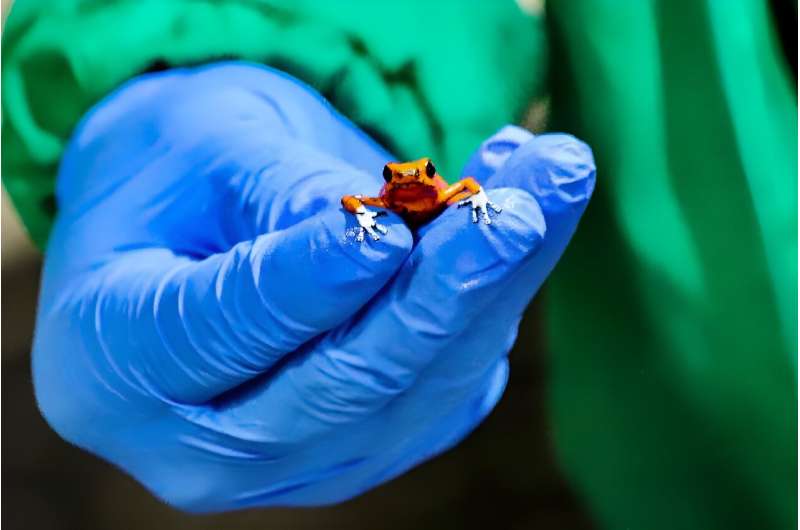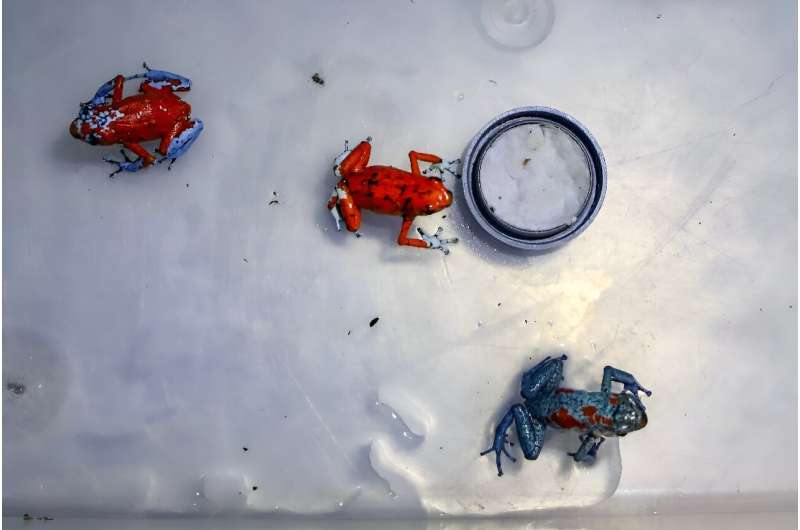This article has been reviewed according to Science X's editorial process and policies. Editors have highlighted the following attributes while ensuring the content's credibility:
fact-checked
reputable news agency
proofread
130 poisonous frogs seized at Bogota airport

Authorities in Colombia seized 130 poisonous frogs being trafficked through the Bogota airport on Monday and arrested the Brazilian woman carrying them.
The woman was transporting the colorful harlequin poison frogs (oophaga histrionica) inside film containers while traveling to Sao Paulo with a stopover in Panama.
She "claimed that a local community had given them as a gift," Bogota Environment Secretary Adriana Soto said in a video shared with media.
Harlequin frogs are venomous, measure less than five centimeters (two inches) and live in damp forests along the Pacific coast between Ecuador and Colombia, as well as in other countries in Central and South America.

"This endangered species is sought after in international markets," said Bogota Police Commander Juan Carlos Arevalo, adding that private collectors might pay up to $1,000 for each.
The police reported that the woman carrying the frogs was arrested "for the crime of wildlife tracking" before being handed over to the prosecutor's office.
Animal trafficking is common in Colombia—one of the most biodiverse countries in the world—especially of amphibians, small mammals and marine animal parts, such as those of sharks.
© 2024 AFP


















